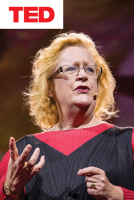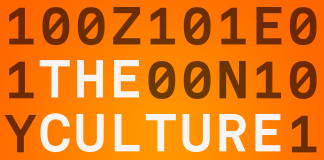
Dare to Disagree by Margaret Heffernan

Read the summary below and get the key insights in just 10 minutes!

Getting people to embrace a different view is difficult, even when children’s lives are at stake. This is what Dr. Alice Stewart discovered when she undertook a 25-year battle to persuade the medical community to stop X-raying pregnant women. With this engaging story, seasoned entrepreneur and author Margaret Heffernan begins her valuable TED Talk about the necessity of conflict to force better solutions and drive change. getAbstract recommends Heffernan’s lecture to people in all fields and from every walk of life because “constructive conflict” leads to sounder solutions.
[/text_block]

- Why promoting change is difficult,
- Why “constructive conflict” is valuable and
- How to foster it in the workplace.

In the 1950s, Dr. Alice Stewart, an epidemiologist, studied the high incidents of childhood cancers. She found that a common denominator in most of the cases was that the mothers had undergone X-rays while pregnant. The study received a lot of attention, and Stewart rushed to corroborate her research before obstetrics practices changed and the cancers disappeared. However, her findings ran contrary to the beliefs of the medical community at the time, and doctors continued to X-ray expectant mothers for another 25 years. These professionals remained “willfully blind” to the readily available research.
“The truth won’t set us free until we develop the skills and the habit and the talent and the moral courage to use it.”
“How do organizations think? Well, for the most part, they don’t….They can’t because the people inside of them are too afraid of conflict.”
Despite her industry’s unyielding response, Stewart knew she was right. Her collaborator, statistician George Kneale, helped her maintain confidence in her research by testing and trying to disprove it. He knew this process of “creating conflict” around her theories would help validate them. People from every field would benefit from the kind of “constructive conflict” Stewart encouraged in her own practice. Although collaborating with like-minded people is comfortable, seeking dissimilar opinions from those with different experience – “thinking partners who aren’t echo chambers” – is important to the integrity of your work.
“But when we dare to break that silence, or when we dare to see, and we create conflict, we enable ourselves and the people around us to do our very best thinking.”
Encouraging constructive conflict within organizations can be difficult. As many as 85% of executives are reluctant to raise issues at work. They worry about the consequences and fear they will lose the argument. Take Joe, an executive at a medical device company. He thought one of its emerging products was complicated to the point of being potentially harmful. Yet he hesitated to say so because no one else seemed to share his view. When he finally aired his concerns, he was surprised that many of his co-workers agreed with him. They revisited the drawing board and, after much discussion and argument, changed the device. His experience and Stewart’s provide lessons for people in all walks of life: Embrace constructive conflict as a way of thinking about a problem. Disputes force you to question, analyze and reconsider your work. Train yourself to view dispassionately the evidence that is so often right in front of you. Learn the skills that enable you to question the majority, stand up to authority, speak out and welcome contrary opinions. Only by doing so will you find the best solutions.
[/text_block]

Corporate speaker Margaret Heffernan is the former head of IPPA (now Pact), a film and television producer trade association. She is a former CEO of several e-commerce companies. She wrote Willful Blindness.
[/text_block]




